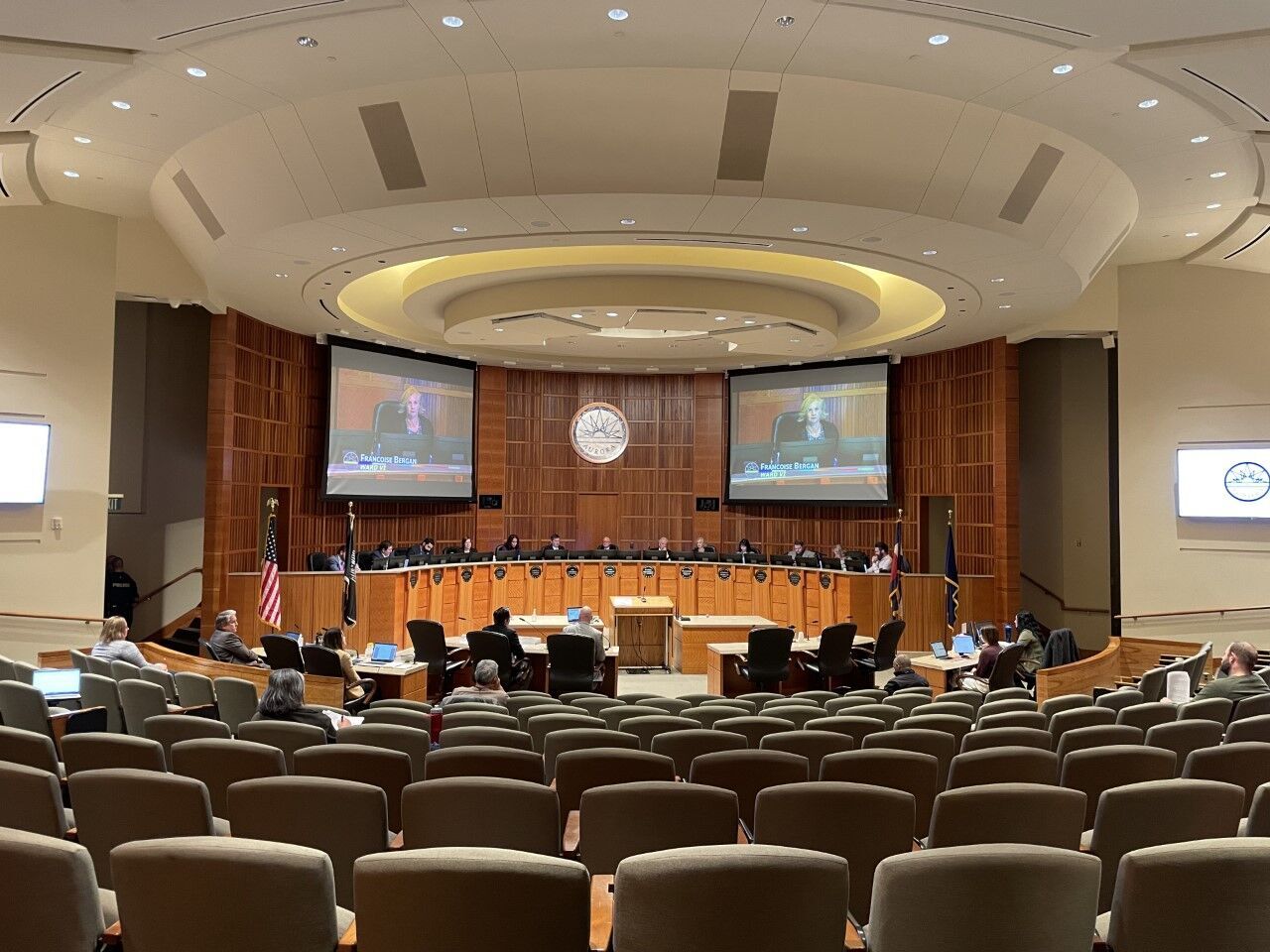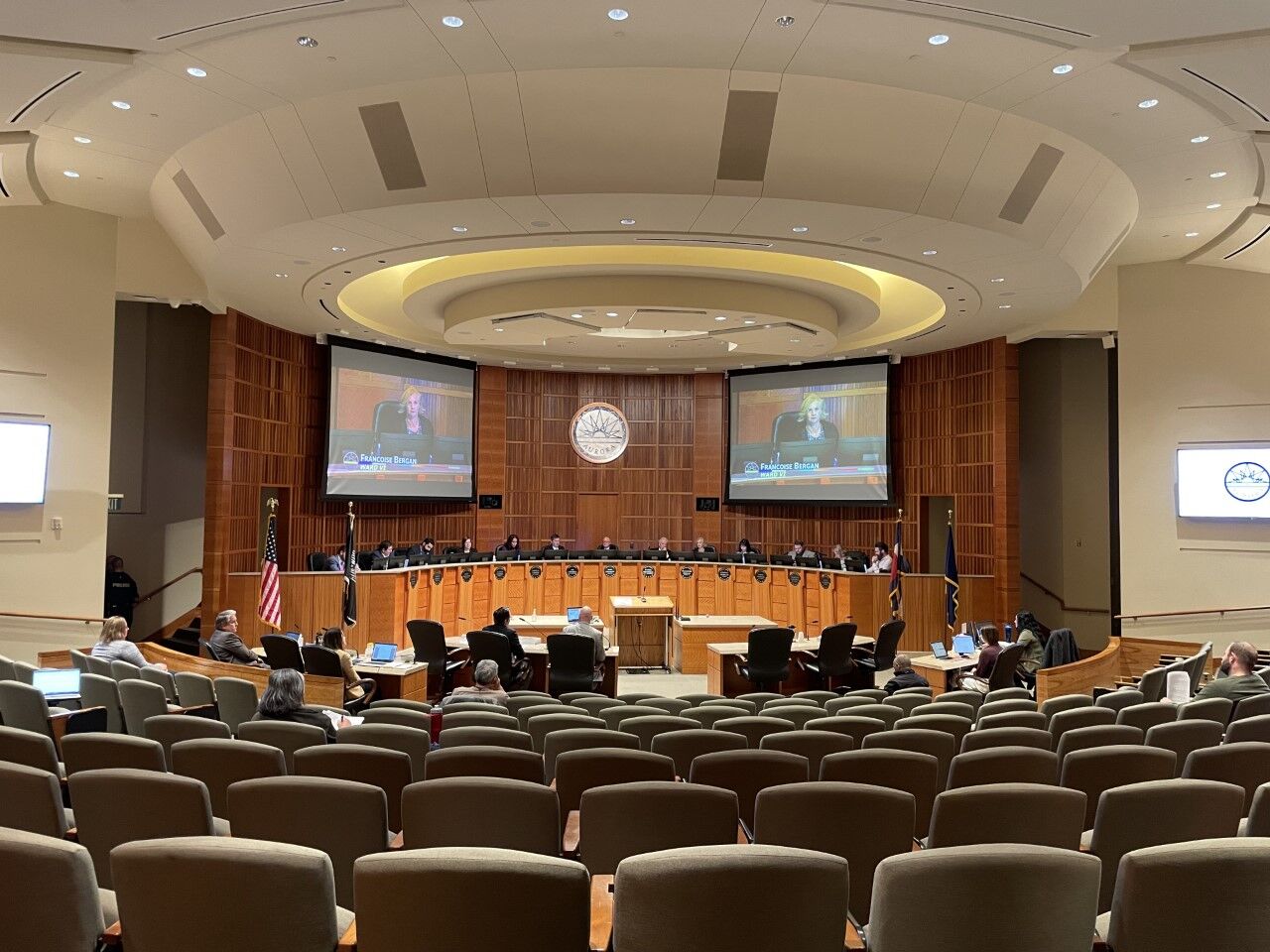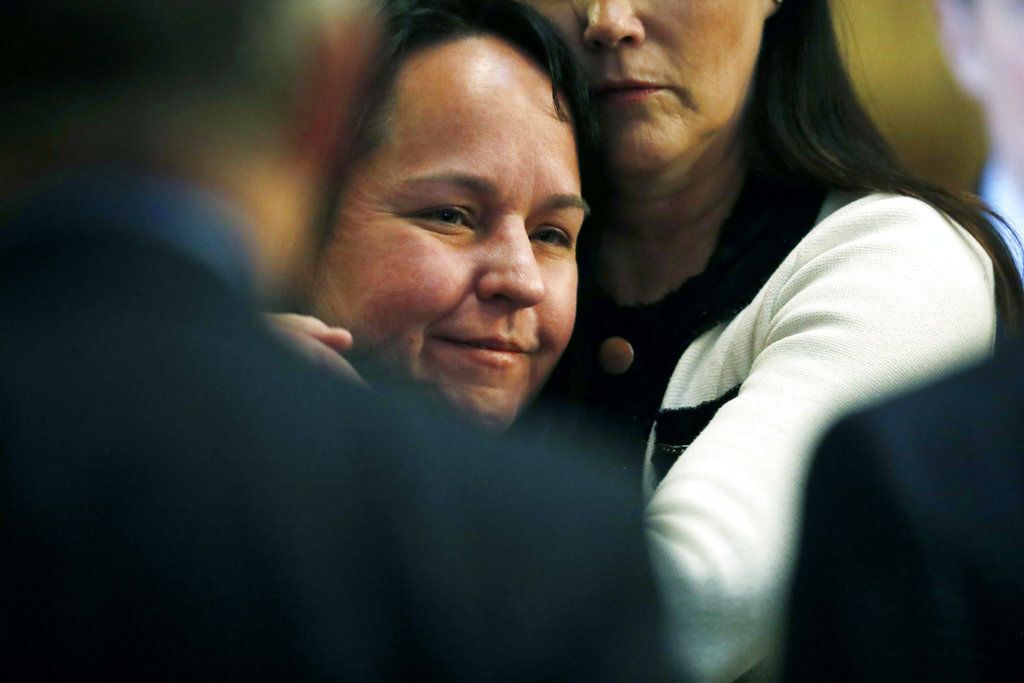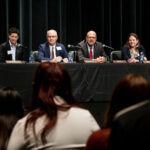Aurora council rejects Coffman’s economic development plan in heated discussion

Aurora’s councilmembers on Monday shot down Mayor Mike Coffman’s economic development plan.
The tense relations between the city council and Coffman have been going on for several months, with councilmembers – who rarely agree with one another – teaming up against several of the mayor’s proposals.
Monday’s heated debate focused on Coffman’s economic development plan, which he put together after saying at a city council workshop in February that the city needs to take a stronger leadership role in economic development.
“Economic development without a vision is exploitation,” Coffman said in Monday’s meeting.
The council rejected the mayor’s plan, 9-1, with Councilmember Dustin Zvonek casting the only ‘yes’ vote.
Coffman’s proposal would have set aside funding to create an economic development plan.
At a meeting in July, councilmembers asked the mayor to work with them and other partners to create the plan. Councilmembers alleged Coffman did not do so, and that he, instead, warned they would have to vote on the item eventually.
During an Aug. 14 meeting, the mayor asked to table the proposal, citing discussions he was having with councilmembers.
On Monday, councilmembers accused Coffman of personally attacking the council and Wendy Mitchell, the president and CEO of Aurora’s Economic Development Council.
Councilmember Danielle Jurinsky compared the contentious conversation to “a bad divorce between mom and dad.”
“The ten of us (city councilmembers) are caught in the middle of it,” said Jurinsky, who used an expletive to describe the mayor.
Councilmember Juan Marcano also accused Coffman of failing to collaborate with city council in the planning process.
“We had an opportunity to begin this process earlier in the year, but because you didn’t get 100% of what you wanted, you decided to can this whole process, instead of working with the rest of us,” Marcano said.
Coffman, in return, accused the council of lacking the courage to move forward with a plan.
“We shouldn’t be so afraid to ask the question about what are we capable of being as a city,” Coffman said. “About a third of the city is undeveloped … and there’s going to be a lot of pressure on that development.”
It is the city council’s responsibility to define what the impact of development will be in the future, Coffman said, telling councilmembers not to “neglect” their responsibility.
“That piece is just missing,” Coffman said to councilmembers. “It’s your responsibility to come up with an economic vision for the city and what we aspire to be and for you to outsource that to the people out there is simply inappropriate.”
Councilmember Alison Coombs responded that their “cowardice” was their refusal to get on board with a plan the council didn’t get a say in.
“I’m going to need you to stop accusing the council of being cowards for asking you to do things and standing up to you when you don’t do them,” Coombs said. “We want to see collaboration and we haven’t seen that. That’s not being ‘cowards.'”
Marcano said a fleshed-out plan would include many things that he insisted is missing from Coffman’s original plan, including a fully developed vision, concrete deliverables, clear expectations from partners and consensus from the community and economic development partners.
“Doing that properly is something that would take time because we need to bring in community voices,” Marcano said. “We need to expand the table of our organizational partners and we need to conduct the research necessary to ensure that we’re informing our vision for the city’s economic future.”
Coffman said his “plan” is only the first step, and it would later come back to the council after revisions.
“Of course, it’s not an economic development plan. It’s only the first step,” Coffman said. “An economic development plan would then come back to the council for a vote. It wouldn’t automatically be put in place.”
The debate about the economic development plan has simmered in conjunction with Aurora’s “strong mayor” ballot initiative debate, which the council unanimously opposed and which Coffman supported. That initiative won’t be on the ballot until 2025.
The “strong mayor” proposal also brought about intense disagreement between Coffman and various members of the city council.
The initiative seeks to change Aurora’s current “council-manager” system to a “strong mayor” form of governance, similar to Denver, Colorado Springs and Pueblo. In a council-mayor form of government, or a “strong mayor” system, the city manager position is eliminated and the mayor becomes the executive in charge of running the city.
“Strong mayors” typically prepare the budget, hold veto powers and appoint key department heads, among other duties.
Critics earlier accused the “yes” campaign of being disingenuous by emphasizing the proposal’s term limits, presumably because that concept is generally popular. Critics also framed the proposal as being pushed by unknown entities whose funding sources are obscured.
Supporters, meanwhile, cast opponents as powers that seek to maintain the status quo, which has not been as responsive or as directly accountable to city residents as a “strong mayor system.” They also argue that checks and balances in a “strong mayor” system are more efficient – because mayors routinely face elections or even a recall.














